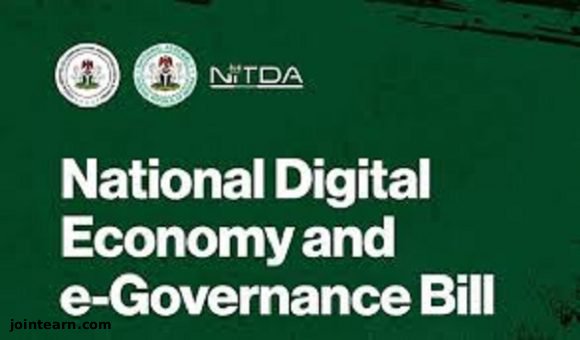
Nigeria’s digital and technology stakeholders have expressed strong support for the National Digital Economy and E-Governance Bill 2025, aimed at strengthening digital governance, fostering innovation, and accelerating socio-economic growth.
During a public hearing at the National Assembly in Abuja, convened by the Joint Committees on ICT, Cybersecurity, Digital, and Information Technology, stakeholders highlighted the importance of the proposed law while urging lawmakers to prevent overlaps with existing agencies to reduce institutional conflict.
NADIR Highlights Opportunities and Risks
The Network of Advocates for Digital Reporting (NADIR) commended the Minister of Communications, Innovation and Digital Economy and federal lawmakers for introducing the Bill.
Barrister Yunus AbdulSalam (SAN), NADIR’s Legal Adviser, said the legislation represents a critical step toward modernizing Nigeria’s digital governance framework and regulating emerging technologies.
“While the Bill is promising, certain provisions appear to replicate functions already assigned to agencies like NITDA, NCC, and NDPC, which could trigger institutional disputes, increase compliance costs, and discourage private sector investment,” AbdulSalam warned.
He recommended that the National Assembly adopt a consolidation and amendment approach, integrating innovative elements of the Bill into existing laws rather than creating redundant regulatory structures.
Lawmakers Stress Benefits for Nigeria’s Digital Economy
Senator Shuaib Afolabi Salisu, Chairman of the Senate Committee on ICT and Cybersecurity, emphasized that the Bill would enhance Nigeria’s digital competitiveness, strengthen e-governance, improve transparency, and boost the ease of doing business in the ICT sector.
“Currently, the digital economy contributes about 20% of Nigeria’s GDP. Passing this Bill will unlock further opportunities for job creation, innovation, and revenue growth,” Salisu said.
Hon. Adedeji Stanley Olajide, Chairman of the House Committee on Digital and Information Technology, described the hearing as a step toward a transparent, innovation-driven governance structure, marking a new phase in Nigeria’s digital transformation journey.
Minister and Agencies Highlight AI and Data Synergy
Dr. Bosun Tijani, Minister of Communications, Innovation and Digital Economy, assured stakeholders that their concerns would be considered for a balanced outcome. He highlighted that the Bill aims to enable seamless data sharing across government institutions and enhance collaboration with the private sector.
“Provisions on Artificial Intelligence (AI) within the Bill could significantly boost productivity and Nigeria’s global digital competitiveness,” Tijani stated.
Kashifu Inuwa Abdullahi, Director-General of NITDA, emphasized the need for a modern legal framework to harness AI in sectors such as agriculture, citing applications in real-time data collection, weather monitoring, and input quality to improve food security.
Broad Participation at the Hearing
Officials from multiple agencies attended the hearing, including:
- Head of the Civil Service’s Office
- Nigerian Communications Commission (NCC)
- Nigeria Data Protection Commission (NDPC)
- Galaxy Backbone
- Nigerian Communications Satellite Limited (NIGCOMSAT)
- Nigeria Computer Society (NCS)
- Association of Licensed Telecom Operators of Nigeria (ALTON)
The session was opened by Deputy Senate Leader Senator Oyelola Ashiru, representing Senate President Godswill Akpabio, who described the Bill as a bold step toward aligning Nigeria’s governance and economic policies with global digital realities.
Transformational Potential
If enacted, the National Digital Economy and E-Governance Bill 2025 is expected to play a transformational role in Nigeria’s digital economy, comparable to the impact of the telecommunications liberalization policy of 2001, positioning Nigeria for sustainable growth and global competitiveness


Leave a Reply